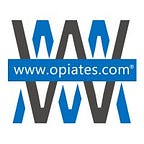Revolutionizing Drug Addiction Treatment: Unveiling the Power of Science and Medical Innovation
For far too long, addiction has been shrouded in myths and misconceptions, leading to ineffective approaches and stigmatization. However, advancements in scientific research and medical innovation have remarkably transformed our understanding of addiction.
In this blog post, we will delve into the revolutionary impact of science, focusing on the groundbreaking contributions of the WAISMANN METHOD® opioid treatment program, which adopts a multidimensional approach to opioid dependence.
Shifting Paradigms: From Moral Flaws to a Treatable Medical Condition
In the past, individuals grappling with addiction were unjustly labeled as morally flawed or lacking willpower. Such societal perceptions resulted in punishment-centric responses rather than preventive and treatment-focused approaches. Fortunately, scientific research has unveiled addiction as a medical disorder affecting the brain and behavior. This paradigm shift has paved the way for a compassionate and effective treatment framework for addiction.
Dispelling Harmful Myths through the Power of Science
Scientific research has played a pivotal role in debunking prevailing myths surrounding addiction, perpetuating stigma, and hindering progress in substance use treatment.
Formerly viewed as a moral failing, lack of willpower, or character flaw, addiction is now understood as a complex medical disorder that dysregulates the brain’s reward circuitry, disrupts normal hormonal balance, and alters neurotransmitter function.
Armed with this knowledge, we can develop effective science-based strategies for prevention, early intervention, and treatment, addressing the root causes of addiction with compassion and accuracy.
Understanding the Dysregulation of the Nervous System and Hormonal Imbalances
Opioid dependence goes beyond the behavioral aspects of addiction; it profoundly dysregulates the nervous system, disrupting the delicate balance of neurotransmitters and hormone production. Prolonged opioid use can lead to imbalances in key hormones such as cortisol, dopamine, serotonin, and endorphins, which are crucial for emotional well-being and stress management. This dysregulation can contribute to mood swings, anxiety, depression, and physical discomfort.
Additionally, opioids alter the brain’s reward circuitry, creating a dependency on external substances to maintain a sense of well-being. This rewiring of the brain results in cravings and compulsive drug-seeking behaviors, making it challenging for individuals to break free from the cycle of addiction.
Embracing a Multidimensional Approach: Unlocking the Path to Lasting Recovery
When it comes to addiction treatment, the Waismann Method Medical Opioid Detox stands out for its comprehensive and personalized approach. This innovative method recognizes the intricate interplay of physiological and psychological factors in the recovery process. By acknowledging the profound impact of opioid dependence on the nervous system and hormonal balance, the Waismann Method targets the underlying physiological factors contributing to addiction.
At the core of the Waismann Method is the understanding that addiction is not solely a behavioral issue, but a complex disorder that affects both the body and the mind. By addressing the physiological aspects of addiction, this approach offers a powerful tool for recovery.
Through tailored medical interventions, Waismann Method seeks to restore the equilibrium of neurotransmitters and hormones, facilitating the healing process and alleviating the physical effects of opioid dependence.
One of the key advantages of the Waismann Method is the environment in which patients are treated. The program takes place in a private room within an accredited hospital, ensuring the highest standards of safety and medical care. Led by a quadruple board-certified medical director, a team of knowledgeable and compassionate physicians guides patients through every step of the detoxification process. This expert guidance and supervision provide reassurance and support to individuals on their journey to recovery.
By effectively detoxifying the body and addressing the physiological aspects of opioid dependence, patients have a solid foundation to embrace the emotional care that best suits their needs. With physical cravings alleviated, individuals can better adhere to and benefit from the emotional support and therapy integral to their recovery.
Conclusion: Embracing Science for Lasting Recovery
The transformation in our understanding of addiction through scientific research has ushered in more compassionate, medical-based treatment approaches. The Waismann Method opioid treatment program stands as a pioneering force, emphasizing the integration of medical science and multidimensional care to address opioid dependence comprehensively. By recognizing the dysregulation of the nervous system, hormonal imbalances, and the interplay between physiological and emotional factors, this approach instills hope and facilitates healing for individuals grappling with addiction.
Let us collectively embrace the power of science, challenge addiction stigmas, and support innovative programs like the Waismann Method as we strive for lasting recovery and enhanced well-being.
Written by Clare Waismann, M-RAS / SUDCC II
Substance Use Counselor | Founder of Waismann Method® Opioid Treatment Specialists and Domus Retreat Recovery Center | Healthcare Writer and Advocate
Bringing Medical Science to the Addiction Field for Nearly 30 Years
If you found this article informative, there’s more to discover! Join me on a journey of education and empowerment by checking out our blog and tuning into our podcast.
